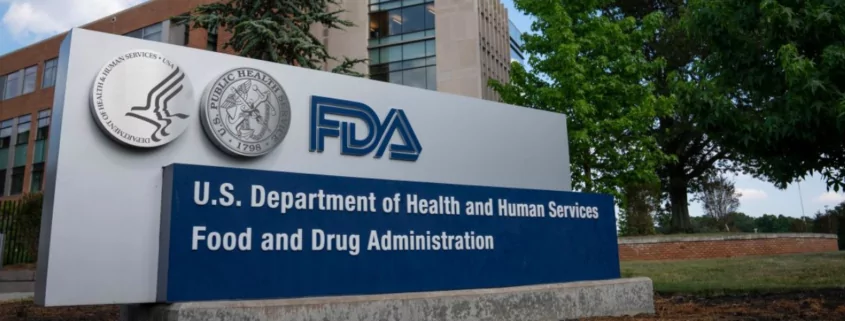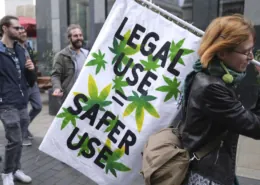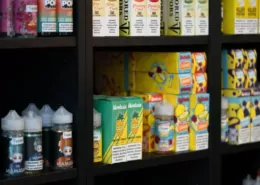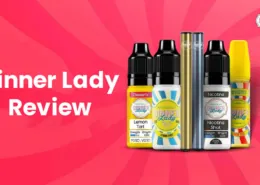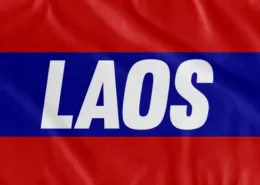FDA Issues Warning Letters Targeting Illegal Disposable Vape Distribution
The FDA recently issued warning letters to three distributors – ABS Distribution Inc., EC Supply, Inc. and Easy Wholesale, LLC – illegally supplying leading disposable vape brands that lack regulatory approval but are wildly popular among adolescents. The targeted products include Elf Bar, Esco Bars, and Puff Max.
This escalated enforcement aims to disrupt major supply channels delivering unauthorized flavored disposables to retailers, given evidence these brands hold special appeal for underage users. By cutting off distributor access, the FDA hopes to curb rampant teenage usage of these concerning products.
Targeting Distributors of Top Disposable Vape Brands Among Youth
Per the agency, their internal data clearly identifies Elf Bar, Esco Bars, and Puff Max as the most widely used disposable e-cigarette brands by teens and adolescents. Other studies corroborate the massive popularity of these disposables among youth due to flavors, discreet device designs, and heavy marketing on youth-centric social media platforms.
By issuing formal warnings against distributors supplying retailers with these specific brands, the FDA intends to choke off access at a pivotal bottleneck. Without distribution, retailers would have diminished ability to stock and sell unauthorized vapes that have fueled skyrocketing underage usage rates.
In tandem, the agency has also targeted manufacturers, retailers, and importers facilitating the youth-vaping crisis. But cutting off distribution channels could prove the most impactful interception point for products with limited oversight and youth appeal.
Today’s warning letters are the latest in a series of FDA’s efforts across the supply chain to address these youth appealing brands. Other recent actions include:
- Warning letter issued to a firm responsible for Esco Bars
- Warning letters issued to retailers and a distributor for selling/distributing Puff
- Warning letters issued to retailers for selling Elf Bar/EB Design and Esco Bars
- An import alert for all Elf Bar/EB Design and Esco Bars
First Step in Achieving Voluntary Compliance Before Harsher Actions
The FDA notes warning letters represent the initial action once violations are identified. The companies have 15 working days to respond to the agency demonstrating specific remediation steps and plans to cease further infractions.
If recipients promptly comply in good faith, enforcement generally stops at the warning stage absent further violations. However, failure to immediately correct trespassings risks escalated actions.
These include injunctions to compel adherence, seizures of illegal products, and steep civil monetary penalties. Especially with repeated violations, the FDA intends to standardize these more stringent remedies.
Stepped Up Financial Penalties and Injunction Authority Deployed Against Vaping Violators
In 2022, for the first time, the FDA pursued injunctions and product seizures against non-compliant vape manufacturers in federal court. The agency has framed these as now routine tools to enforce regulations prohibiting unauthorized tobacco products.
Likewise, after rarely utilizing its financial penalty powers historically, the FDA has levied 15 fines against illegal vape sellers since just January 2023. Each penalty carried a six-figure dollar amount, displaying increased willingness to wield monetary sanctions.
The agency has effectively put other industry players on notice that those violating youth access protections will face consequences beyond warning letters if they fail to rapidly reform practices.
Ongoing Surveillance to Rapidly Identify New Products of Concern
Complementing enforcement, the FDA continually monitors intelligence on emerging vaping goods viewed as potentially problematic for youth outreach. This allows timely identification of new high-risk products entering retail markets absent regulatory approval.
One example is the new Center for Rapid Surveillance of Tobacco Products, a collaborative FDA and NIH initiative providing additional data streams to flag items for expedited enforcement.
By augmenting surveillance capabilities, regulators aim to get ahead of the next youth-targeted disposable vape threat before it spirals into an adolescent usage crisis.
Assessing a Ban on All Unauthorized Disposable Vape Products
With disposable vapes so intrinsically linked to the teenage vaping epidemic, the FDA is also evaluating enacting a prohibition on any disposable e-cigarette products lacking express regulatory approval.
Rather than playing whack-a-mole against specific brands and supply entities, categorically banning the entire class of unauthorized disposables could address the issue at its foundation.
Proponents argue such a move could rapidly deflate underage usage rates by removing the chief vector appealing to youth – cheap, accessible, kid-friendly disposable vaping devices and associated e-liquids.
However, the FDA would need to demonstrate likely benefits outweigh potential loss of access for adult smoking cessation. Several vape manufacturers have applied for youth-restricted disposable approvals.
Potential Challenges Impacting Disposable Vape Enforcement
While escalated actions against entities like distributors aim to deter youth vaping, several factors could hinder efforts:
- Rapid proliferation of new brands and supply channels as certain products get restricted
- Lack of reliable age verification for online sales of disposable vapes
- Immense volumes of packages for customs enforcement to adequately screen
- Foreign manufacturers beyond FDA jurisdiction flouting U.S. regulations
- State disagreements on appropriate regulatory scope, penalties, and prohibitions
Navigating these obstacles will require continued coordination, surveillance enhancements, and calibrated deployment of FDA authorities.
- Is It Illegal to Vape or Smoke While Driving in Minnesota? - August 15, 2025
- American Airlines Vaping Passenger Alleges Assault in Police Report - August 15, 2025
- NEXA PIX 35K Disposable Vape with Crystal Tank Review - August 15, 2025

